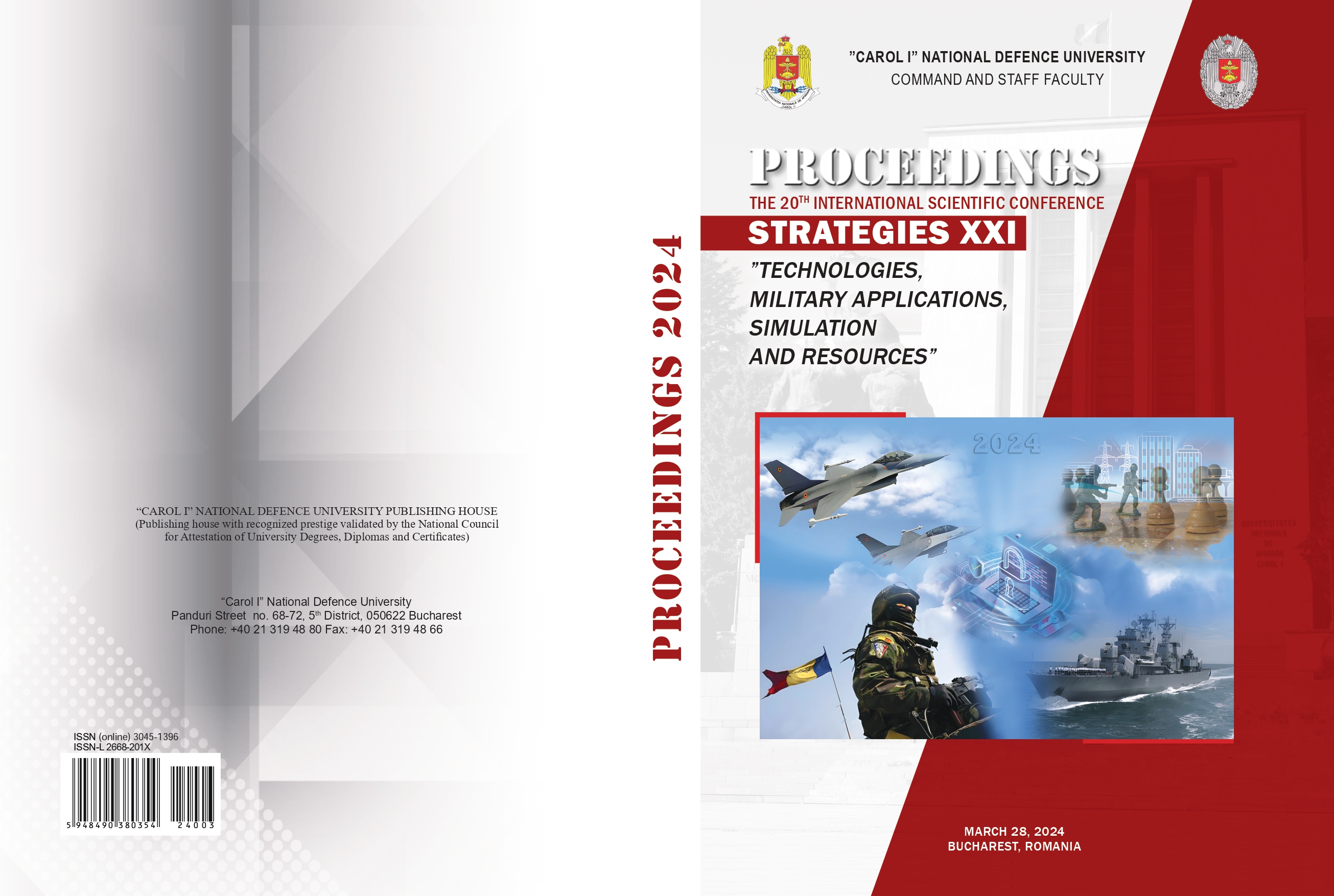ADVANCES IN TECHNOLOGY AND THEIR IMPACT ON MILITARY RESILIENCE – RESPONSE PLANNING A STUDY IN THE CONTEXT OF NATO’S LAYERED RESILIENCE CONCEPT
ADVANCES IN TECHNOLOGY AND THEIR IMPACT ON MILITARY RESILIENCE – RESPONSE PLANNING A STUDY IN THE CONTEXT OF NATO’S LAYERED RESILIENCE CONCEPT
Author(s): Carola FREY
Subject(s): Social Sciences
Published by: Carol I National Defence University Publishing House
Keywords: military resilience; response planning; artificial intelligence; civilian resilience; layered resilience; crisis management.
Summary/Abstract: NATO’s Allied Command Transformation is developing the Layered Resilience Concept, Romania being responsible for the response planning thematic working group. This study investigates how artificial intelligence will impact military resilience, especially in the field of response planning. It highlights AI’s role in accelerating decision-making and enhancing defense strategy across scenarios. Emphasizing technological advancements’ contribution to military and civilian resilience, it underscores the importance of civil-military interconnectivity. Technological strength, primarily developed by the private sector, not only boosts military flexibility but also, through collaboration, enhances societal resilience and deterrence against threats and uncertainties.
- Page Range: 89-98
- Page Count: 10
- Publication Year: 2024
- Language: English
- Content File-PDF

